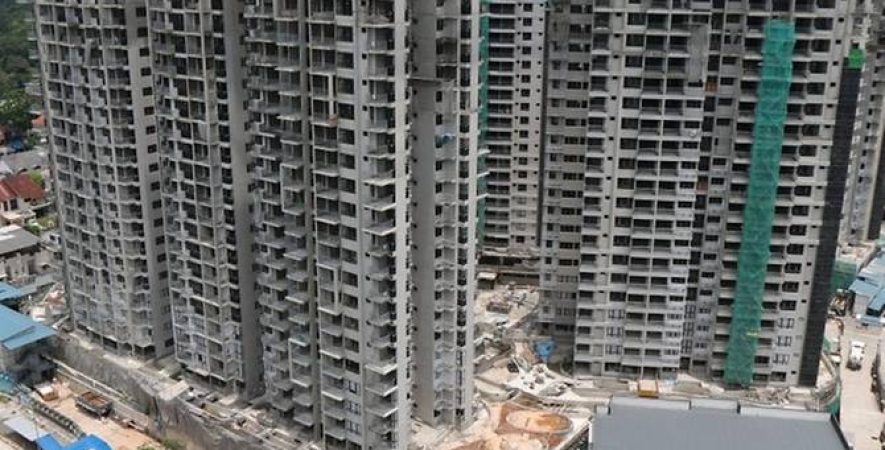SINGAPORE: What happens when you have bought a newly launched property from a developer, but wish to sell it before it is completed?
Before completion, a transaction of a unit between the original buyer and new buyer is called a sub-sale in industry parlance.
This guide takes you through the process of a sub-sale for under development private properties in Singapore.
The Urban Redevelopment Authority (URA) defines a sub-sale as “the sale of a unit by one who has signed an agreement to purchase the unit from a developer or a subsequent purchaser before the issuance of the Certificate of Statutory Completion and the Subsidiary Strata Certificates of Title or the Certificates of Title for all the units in the development”.
Simply put, a sub-sale is the secondary sale of a unit before it is completed.
CONDITIONS FOR A SUB-SALE
In a sub-sale situation, the original buyer/purchaser (Buyer A) must have already signed a Sale & Purchase Agreement (S&P Agreement) with the developer, and have paid the stamp duties due.
Because the project is still under construction and the Certificate of Statutory Completion (CSC) has not been issued, Buyer A must first inform the developer (most of the time via his/her agent) of the proposed sub-sale to a subsequent purchaser, Buyer B, for instance. Buyer A then enters into a Option to Purchase with sub-sale clause with Buyer B.
At the request of Buyer B through his/her lawyers, the developer is obliged to enter into a new S&P Agreement with Buyer B at the exact same monetary price and terms as was offered to Buyer A.
In other words, the terms and conditions of the new S&P Agreement must place the developer and the Buyer B in the same position as if Buyer B were Buyer A in the original S&P Agreement.
What this means is, Buyer A directly pockets the profits of the sub-sale, minus taxes and legal fees he/she bears for the fresh S&P Agreement.
If Buyer A had bought a unit at S$2.5 million and sub-sells it at S$2.8 million to Buyer B, Buyer A is due S$300,000 in cashier’s order from Buyer B. What Buyer A has paid to the developer up until that point will also be credited back to Buyer A.
After Buyer B signs the fresh S&P agreement that is in his/her name, he/she becomes the owner and will proceed to receive the keys from the developer upon the Notice of Vacant Possession of the unit.
WHY DO SUB-SALES HAPPEN?
There were 81 sub-sale transactions for private property in Singapore in the third quarter of 2018, compared with 2,672 resale transactions during the same period. So, why do sub-sales occur?
The most common reason is because the financial standing of the original buyer changed after he/she signed the S&P Agreement with the developer, and he/she had little choice but to sell the unit.
In this case, the original buyer usually suffers a financial loss, after taking all stamp duties and fees into account. (Remember: the seller is liable to pay hefty Seller’s Stamp Duty charges.)
In contrast to the third quarter of 2018, there were 281 sub-sales in the fourth quarter of 2017, before additional cooling measures were imposed.
In a hot market, the original purchasers may find that it makes sense to cash in and realise capital gains by selling the new launch properties they bought, even before they are completed.
This is especially if the original sellers have bought into projects that are popular (for example, fully sold) or are holding onto units that are popular (for example, a good stack/facing/unit number).
These sellers are also at the tail end of their liability for Seller’s Stamp Duty (SSD), or have exited their three-year liability period, making it possible to realise higher capital gains by avoiding SSD.
But the so-called perks end there. If you are a married couple (at least one Singapore citizen) and were counting on an remission for Additional Buyer’s Stamp Duty (ABSD), you cannot get an ABSD refund for sub-selling your under development property.
This is because the ABSD refund is only applicable for the disposal of your first property, and the sub-sale property is your second property in this instance.
BUYING SUB-SALE PROPERTIES
In a cool market (like right now), prospective buyers might discover sub-sale units that are good value at otherwise sold-out projects.
Compared to buying a newly launched property, buyers do not have to wait as long for TOP, although they might find that sellers asking for a higher price so as to try to cover additional costs such as SSD and at least breakeven.
At the same time, a cool market also sees developers dangling deep discounts for buyers at new launches, so be sure to look everywhere and weigh your options and needs before you commit, or engage a buyer’s agent to advise and assist you.
Source: Channel NewsAsia, 2nd December 2018, 99.co (Photo: 99.co)

